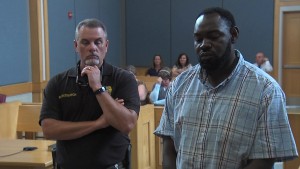The Right to Lease or Rent Foreclosed Property
The Right to Lease or Rent Foreclosed Property
Who has the right to lease a foreclosed property? One guess might be the owner, depending on the stage of the foreclosure process. Another answer may be the bank or financial institution that owns the property after the foreclosure is complete. According to Earl Johnson, a Goose Creek, South Carolina resident, he had the right to lease foreclosed property. However, police claim the Johnson never owned the house, and that Johnson had conned tenants into renting foreclosed property.
What Was Johnson’s Defense?
Earl Johnson claims he has a legal right to lease foreclosed property that he didn’t own under the Declaration on the Rights of Indigenous People signed by President Barack Obama.
Before focusing on who is right or wrong, let’s define foreclosure. Foreclosure is a process where a county or financial institute takes a property from a property owner and sales it. Foreclosures typically occur after a property owner defaults on a mortgage loan or property taxes. Mortgage holders, usually a bank, sell the property to pay off the remaining debt on the loan or taxes.
The right to lease or sell a foreclosed property depends on the stage of the foreclosure. A property owner can avoid foreclosure via a short sale, short refinance, loan modification, repayment plan, or by challenging the foreclosure. A mortgage holder can sell the property through an auction. In many situations, the former homeowner moves out and the property is left vacant until the bank or county sells it. 
Earl Johnson wasn’t in either category. He never owned the property or was a lender holding a mortgage on it. Yet, he leased the property in question to two sisters, Tina Capreole and Nancy Bowman. They paid Johnson $1200 and moved in on August 1, 2015. A couple days later, a realtor dropped by the property to show it to prospective buyers. That is when the new tenants discovered the man they’d leased the home from didn’t own the property. In fact, the property was in bankruptcy.
Typically, a tenant has some rights in a foreclosure when a landlord defaults on his mortgage or taxes. For example, the Mortgage Reform Act passed by Congress in 2009 gives tenants living in foreclosed property 90 days to find a new place to live. This Act and many other tenant rights weren’t available to the tenants living in the “leased” foreclosed property in South Carolina. The bankruptcy trustee, a court appointee who oversees bankruptcies, told the tenants they had to move because the tenants were living there illegally.
It’s a Crime to Lease Property a Person Doesn’t Legally Own
It’s a crime to lease property without the permission of the property owner. Illegally leasing property that one doesn’t own is a repeatedly occurring scam which occurs across the country. For instance, in 2013 a Florida woman was accused of leasing her neighbor’s foreclosed home to tenants for more than one year. Tenants allegedly paid her about $13,000.
In Goose Creek, Johnson was arrested and charged with:
- Burglary in the third degree
- Obtaining signatures under false pretenses
- Operating a business without a license
Burglary is the criminal act of breaking and entering into a structure for the purpose of committing a crime thereafter. The entry doesn’t require the use of force. Johnson is accused of breaking and entering into the property prior to leasing it. According to the tenants, he even gave them keys to the home and made some home improvements to the property.
Obtaining property by false pretenses is a crime when someone makes misrepresentations or lies to get property. In this case, Johnson is accused of misrepresenting himself as the property owner to illegally obtain the tenants’ rent.
A business license is required to operate a business in a particular area. Failure to have a proper or valid license is a crime.
Is the Declaration on the Rights of Indigenous People signed by President Obama a Valid Defense?
The Declaration is a statement addressing the human rights indigenous people have. It was formally adopted by the United Nations in 2007 and formally endorsed by President Obama in 2010. The purpose of the Declaration was to emphasis the fact that indigenous people have the right to enjoy all human rights and fundamental freedoms recognized in the United Nation’s Charter.
Notably, the United States originally voted against the Declaration when the U.N. initially voted on it. Since the Senate has yet to ratify it, the Declaration isn’t legally binding and not a part of U.S. criminal laws. The Declaration doesn’t create new rights for indigenous people. It is unlikely that Johnson will succeed with this defense.


Comments